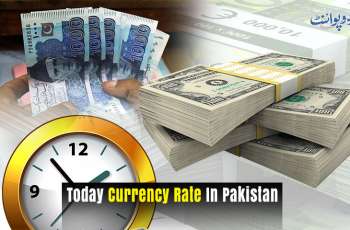BRUSSELS (Pakistan Point News / Sputnik - 17th November, 2020) The two-day session of the European Business Summit (EBS) held in the format of a video conference started in Brussels earlier on Monday, with its participants focusing on the world economic recovery in light of the coronavirus pandemic and the transition to a "green" economy.
After concluding the Paris agreement on climate change and the way the world should tackle the issue at the 21st UN Climate Change Conference (COP21) in 2015, Europe clearly took the lead of industrially-developed world regions in deciding to get out of the carbon-based economy and becoming CO2-neutral. Europe decided to become carbon-neutral by 2050, a goal perceived by many as utterly impossible, and the rest of the world was more watching than acting.
Though the US pulled out of the agreement under President Donald Trump's administration, Joe Biden, who has been declared the winner of the US presidential election by media outlets, has already said that Washington would rejoin the Paris agreement, as well as launch a plan for making the economy more environmentally friendly and catching up on the other continents.
At about the same time, China announced that it had decided to become carbon-neutral by 2060 � a firm engagement in the frame of the Paris agreement. In other words, the will of the European Union to go for carbon-neutrality was vindicated by the two largest polluters and CO2-emitters on the planet. Though CO2 is not a pollutant since it is indispensable for life on earth and oxygen production by plants through photosynthesis, it appears to be the main cause behind climate change and human-made carbon should therefore be curbed.
EUROPE BETS ON SO-CALLED GREEN DEAL
The Green Pact, also dubbed the Green Deal, which sets out plans for Europe to become a carbon-neutral continent by 2050, was European Commission President�Ursula von der Leyen's hallmark policy as she assumed office on December 1. Once ratified, the law will allow the EU to impose binding emission targets on member states.
A major part of the Green Deal is energy, as it implies the disappearance of fossil fuels (coal, oil and gas) and the victorious replacement by renewable sources of energy, not producing CO2. It is this part that caused a major disagreement among experts, industrialists in the energy field and politicians.
The population does not realize the real impact of different technologies and mostly only understands the slogans repeated by the Greens that nuclear energy �which emits no CO2 � is bad, linking it to the atom bomb and the fact that it produces long-life nuclear waste, while solar energy and wind energy are good because they are natural, free and do not emit CO2. These postulates are false and the lobbying of all actors is frantic, with the European Commission in the middle, having great difficulties in finding a constructive common ground.
The Greens want to ban nuclear energy and want to impose solar and wind "renewables," feigning to forget that these intermittent sources require gas-power plants to work for at least two thirds of the time to reach the level of energy to be provided permanently.
Other political parties � except for the populists and some conservatives � are paralyzed by political correctness and will make all the wrong decisions, potentially creating electricity shortages, dramatically increasing the cost of electricity, and massively increasing the emission of CO2 by the gas-power plants that need to compensate for the erratic character of electricity production by the main renewable sources.
In addition, betting on the electric car is good for the traffic-clogged cities where there will be less pollution, especially by micro-particles, but the life-cycle analysis of batteries shows a very bad result for the environment. And manufacturing electric cars in countries that produce their electricity with coal power plants is the worst solution one could find, as in China.
"The environmental performances of the electric car are only as good as the performance of the power plants producing the electricity to feed the batteries of the electric car. If you burn coal or fuel to produce electricity as it is overwhelmingly the case in China (and even more so in the future), you should strictly avoid selling electric cars in China! To save the environment ... But politicians do not want to hear this," Damien Ernst, a specialist in electrical networks and professor at the ULiege university in Belgium, told Sputnik, commenting on the issue.
CONFERENCE TO ANALYZE VARIOUS 'GREEN DEALS' IN THE WORLD.
The European Business Summit this week presents conferences and workshops with an array of experts, industrialists and leading politicians on many of the issues that the European Commission is facing. For the EU, the most important one after the response to the coronavirus pandemic or gender equality is the new Green Deal.
The Green Deal means a paradigm shift of hundreds of billions of Euros that the European Commission will borrow from the markets to inject into the economy, in support of new technologies, processes � and especially � new policies in the environmental field and sustainability.
A first workshop brought together European and Chinese top economic deciders, CEOs, the European Commission and academics from China and Europe, to answer the question of how China and the EU can be the green engines of global economic recovery.
European industrialists, such as Bernard Kemper, CEO of EEW (Energy from Waste) or Kjell Staerk, the vice president of Danfoss, talked about their activities and how they fit in the Green Deal of the European Commission. In addition, Staerk presented the so-called zero project of his company hometown, Soderborg, which will be carbon-neutral by 2029, while Kemper spoke about the European know-how being developed to generate energy from waste and environmental protection.
From the Chinese side, He Jijiang, who represented the Institute of Energy Transition of Tsinghua University, talked about the friendly race between European � mainly German � research teams and Chinese labs on the efficiency of solar panels and potential collaboration.
Doctor He Yun from China's Hunan university explained how motivated the students were for the climate agenda in China as well as in the rest of the world. She also linked their new priority with the fact that they will be in government and business deciding positions in four years, meaning that the present focus is only going to increase.
In addition, Raffaele Mauro Petriccione, the director general for climate action at the European Commission, insisted on the speed needed to tackle the issue, saying that despite its complexity, the sustainability efforts cannot wait another decade.
Nevertheless, it is sometimes difficult to know the truth about the reality of efforts deployed. Wang Wenjnam, the director general of the Chinese International Cooperation Department, said renewable energy had grown dramatically in China, while electricity production had become much more environmentally-friendly. She insisted on the need to rely on scientific innovation, implying that China was on the right path for "green energy" and the electric car.
However, reality is not what she describes. In particular, China has largely built its growth from fossil fuels, and the country continues to build many new, highly polluting coal-fired power stations every year. The very notion of carbon neutrality was not substantiated by President Xi Jinping, when he proclaimed the goal of carbon-neutrality by 2060 for China.
Coal has been the engine of China's phenomenal economic boom. Its annual consumption almost quadrupled between 1990 and 2015 and represented 70 percent of the country's energy consumption. According to the latest data, it is 60 percent.
As total energy consumption has increased, that of coal has mathematically increased � by 1 percent last year, according to the National Bureau of Statistics. China's coal production capacities, under construction or planned, represent nearly 250 gigawatts, which is more than the current production of the United States or India.
Apart from that, China has huge problems � like all countries � of efficiently inserting electricity produced by intermittent sources, solar and wind, onto the electricity grid. At any rate, these renewable sources only represent 7.7 percent of China's electricity needs, a figure comparable to the situation of Europe. For many experts, it is impossible to suppress nuclear energy if the European goals of the Green Deal are to be pursued.
Other workshops dealt with transport, the participation of European Commissioner for Transport Adina Valean, and other issues, such as water, with Environment Commissioner Virginijus Sinkevicius, in relation to the Green Deal.
PROGRESS IN DEVELOPING GREEN DEAL
Another discussion involved Executive Vice-President of the European Commission Frans Timmermans, who is in charge, precisely, of the Green Deal, where he drew an extremely positive picture of the Green Deal's progress.
"I am very excited! China follows the lead of Europe and decides carbon-neutrality by 2060. What is more, China starts to take important measures to reach that goal. This year Japan, South Korea, Japan have taken up our date of 2050 too, and now the USA is back, with the decision of Joe Biden to come back to the Paris agreement next year. We have the momentum for the Glasgow COP conference from 1 to 12 November 2021, for a real breakthrough. It means European leadership on a global scale. It vindicates our positions," Timmermans said during the summit.
The commissioner noted that this transition to a "green" economy is "a terribly complicated transformation process" and the EU had already allocated huge sums. According to Timmermans, the Green Deal will have very far-reaching consequences for three sectors � the building industry, agriculture and transport.
"The pandemic impact? It is a mixed bag. Most businesses take a very long-term view. We are also in the middle of an industrial revolution. We realize that with COVID, we need to strongly support SMEs [small and medium enterprises]. It would arrogant to say that we have changed the mindset but were not sitting on the fence, that is for sure, waiting for COVID to recede. We need to restructure our economy in a sustainable way. The Green Deal is a roadmap, not a prescription, we need to adapt and be flexible, with the active participation of industry," Timmermans said.
At the moment, there are no changes for the Green Deal, the vice-president said, noting that the international context should be kept in mind, as maintaining the status quo is not possible.


